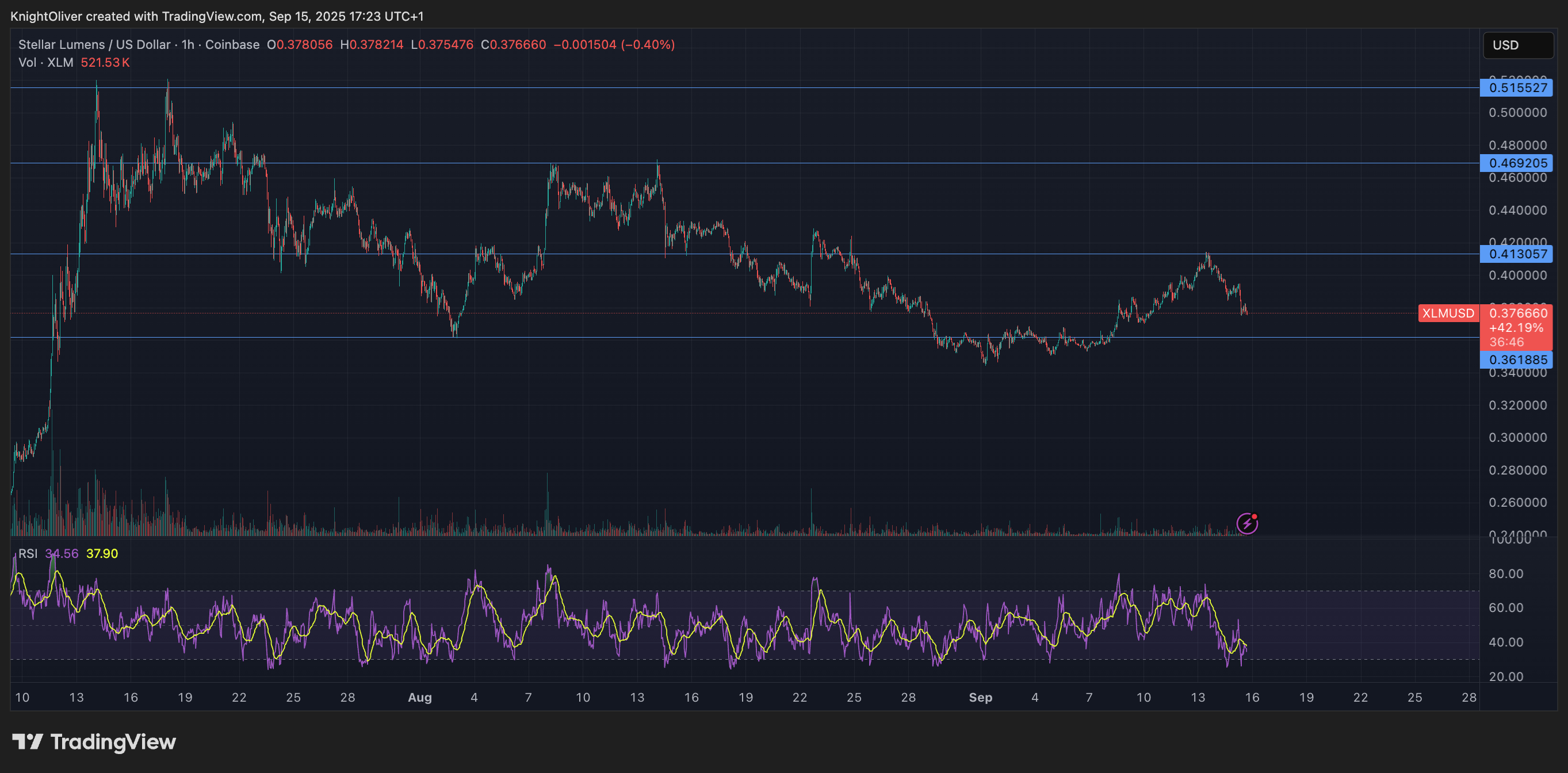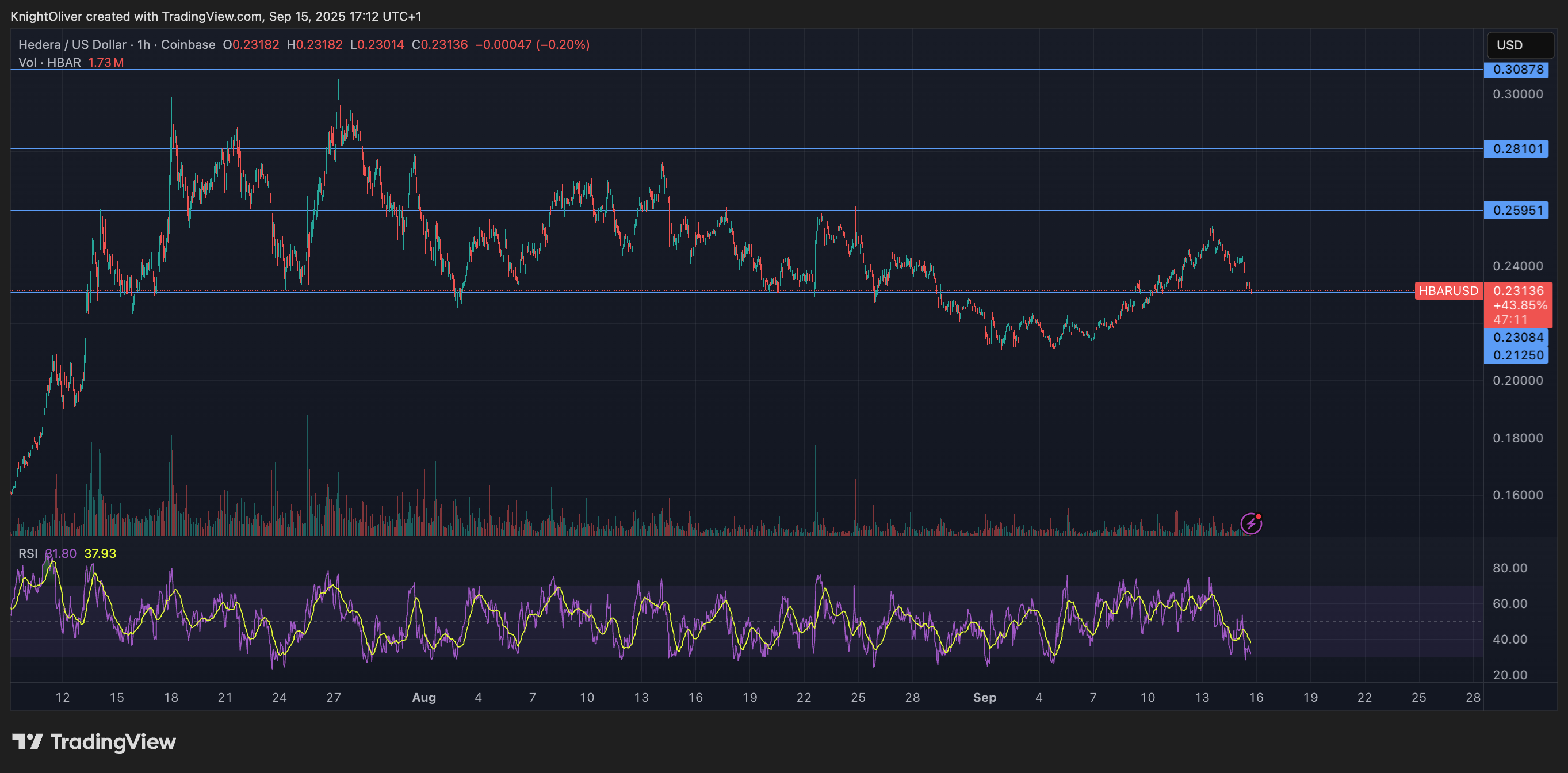Uncategorized
El Salvador Dispatch: How Bitcoin Taught a Nation to Dream

This article is part of a four-piece series on El Salvador. You can find the previous dispatch, a story on El Zonte, here.
There was formidable energy at this year’s Plan B conference in El Salvador.
The event, which took place on Jan. 30-31, was historic for many of its 2,500 attendants. It was the first Bitcoin forum in the Central American nation to have a full dual-language agenda — meaning sessions in both English and Spanish.
For Roman Martínez, a Salvadoran co-founder of Bitcoin Beach, Plan B was a dream come true, because it enabled ordinary Salvadorans to make sense of their country’s Bitcoin experiment and ponder their own place within it. “Up until now, every Bitcoin conference was geared towards foreigners,” he told me on the first day, in Spanish. “Not everybody knows English. It’s already hard to learn a complex topic in your own language. In another, it’s three times harder.”
Martínez was involved in organizing the event. The expectation, he said, was for maybe 100 to 150 Salvadorans would show up — but more than 1,500 tickets were sold to Spanish speakers. “I’ve never seen so many Salvadoran faces at a Bitcoin conference,” he said. “We’re arriving at a point where Salvadorans are realizing that Bitcoin isn’t going anywhere, and either we learn to become part of it right now, or we’re going to be left behind.”
I could feel it too.
The English-speaking area, located at the Sheraton Presidente San Salvador Hotel, had crypto celebrities on stage including Tether CEO Paolo Ardoino, and OGs like Samson Mow, Jimmy Song, Blockstream CEO Adam Back and early Bitcoin developer Peter Todd. “We are witnessing a battle between centralized and decentralized systems!” Walker America, host of THE Bitcoin Podcast, shouted at the conference’s opening panel.
Yet that side of the conference felt somewhat formulaic compared to the Spanish-speaking zone, held at the Museum of Arts of El Salvador, which was absolutely electric. Over there, Salvadorans of all stripes outlined plans to help their country develop — from providing new educational opportunities, to mixing Bitcoin with dental care, to discussing the government’s strategy with the International Monetary Fund (IMF). Many of the panel speakers, young Salvadorans themselves, had fire in their eyes.
“We are in the right place in the world at the right time in history,” Gerardo Linares, co-founder of Bitcoin Berlín (the initiative behind the nation’s second Bitcoin circular economy) said to a completely bewitched audience. “It’s all happening right here, in El Salvador.”
A conference for Salvadorans
I was struck by the Spanish area’s demographic makeup. Crypto conferences are famously male-dominated; participants often complain of having to navigate a sea of dudes. The English-speaking zone was like that — maybe 90% male and 10% female.
The Spanish side was much more balanced, with a ratio of approximately 60% men and 40% women. While the majority of attendants sported black and orange Bitcoin T-shirts, you also saw middle-aged Salvadoran couples wearing elegant Salvadoran outfits, and twenty-something university students with turtlenecks and notepads.

I asked Evelyn Lemus and Patricia Rosales, two of the Salvadorans who spearheaded the Bitcoin initiative in Berlín, what they thought of the female attendance rate. They didn’t seem surprised. “There is a new generation of Salvadoran women who do not depend on men,” Rosales, a single mother herself, told me.“
In El Salvador, most of the time, it’s women who manage family finances,” Lemus said. “That’s why they come to events like this: To see how they can manage and invest the family money. It’s one of the reasons we really wanted to have the conference in Spanish.”
Bitcoin shouldn’t be reserved to the nation’s elite, but should make everyday life easier for ordinary Salvadorans, Lemus said. That concern influenced her action plan for Bitcoin Berlín. “We wanted to push back on this notion that Salvadorans don’t use Bitcoin — that only expats use it. Now, if you go to Berlín, you’ll see working class people using Bitcoin.”
Making sense of El Salvador’s situation
There was an overall feeling that El Salvador is on the cusp of entering a new phase in its Bitcoin experiment.
The last four years have seen the Central American nation, once known as the homicide capital of the world, rebrand itself into Bitcoin Country. President Nayib Bukele, by locking up MS-13 and Barrio 18 and putting an end to gang warfare, had given El Salvador a once-in-a-lifetime opportunity to reorganize itself and attain prosperity — at least that’s how most of the people at the conference seemed to see it.
A lot of conversations revolved around the pick-up in Bitcoin adoption. For years, despite bitcoin becoming legal tender in 2021, you could only pay for stuff with the cryptocurrency in El Zonte, the small surfing village also known as Bitcoin Beach. In 2023, 88% of Salvadorans did not use the digital coin, according to a survey by the Central American University.
But now a second Bitcoin circular economy has been implemented in the town of Berlín, up in the mountains, and other initiatives are reportedly growing elsewhere, like in Santa Ana, the second largest city in the country.
Martínez, Lemus and Linares were all eager to share tips and advice. The secret sauce to adoption, they said, is to mix Bitcoin initiatives with social work. “If the way to get people to use Bitcoin was to make hamburgers instead of doing social work, then I would be making hamburgers,” Linares told me. “Whatever works. People like social stuff, so that’s what we’re doing.”

Stablecoin giant Tether’s decision to relocate its headquarters to El Salvador was also perceived as a massive win. Tether reported $143.7 billion in assets, including $94.5 billion in Treasury bills, in the last financial quarter of 2024. For comparison, El Salvador’s GDP was estimated at $34 billion in 2023 by the World Bank.
Tether has become the largest company (by far) to be based in El Salvador — and other crypto firms are bound to follow in its footsteps, taking advantage of the nation’s advanced crypto regulatory framework and increasingly skilled workforce. For Salvadorans, that means more career opportunities, higher salaries and the possibility that the country may become a tech hub in its own right.
“El Salvador should not only be known for being the first to implement bitcoin as legal tender,” Darvin Otero, CEO of tiianki Technology, said on stage. “Let’s change the lives of the young folks here and create the next leaders of this tech movement.”
“We have a small territory, but we can have a big dream,” Alejandro Muñoz, a Salvadoran lawyer, said. “We can provide a big service. … Good lawyers will attract good investors and filter the scammers out. Bitcoin education needs to happen in the legal industry; steps are being taken already in that direction.”
Bright future ahead
The conference occurred only days after the government, as part of a recent multi-billion dollar deal with the IMF, rescinded bitcoin’s status as legal tender — meaning that businesses aren’t obliged to accept bitcoin payments anymore. While some members of the Bitcoin community have accused Bukele of caving to the IMF, none of the Salvadorans at Plan B seemed to see it that way. In their view, nothing has changed on a practical level, since the vast majority of businesses didn’t use Bitcoin to begin with.
In fact, a number of people welcomed the deal. “El Salvador locked in long-term funding to finish the reforms needed,” Mike Peterson, an American expatriate who lives in El Zonte and co-founded of Bitcoin Beach, posted on X recently. “The IMF loan puts the country on track to get the BBB credit rating that most sovereign wealth funds require to invest in a country.”
That’s the big difference between Salvadorans and Bitcoiners. Hardcore Bitcoiners prioritize global adoption; they want the cryptocurrency to eventually supplant government-issued currencies, like the U.S. dollar. For them, El Salvador is a stepping stone, the first nation to initiate hyperbitcoinization, but certainly not the last.
Salvadorans don’t have the same priorities. For them, Bitcoin is simply a tool, a means to an end. Their goal is to develop Salvadoran society.
“Salvadorans have always been proud of being Salvadoran. But there was a lot of pessimism. We were never the first in anything positive, only in negative things,” Linares told me. “Now people come from all parts of the world to listen to what we have to say. Bitcoin has a lot to do with that.”
“There are a lot of projects here in El Salvador that invest so much time and resources and get almost nothing in return — except tremendous pride in being able to give back to the community and support everyone else. This feeling needs to expand throughout the country. We’re in a moment of great change. You can feel it in the air.”
Uncategorized
XLM Sees Heavy Volatility as Institutional Selling Weighs on Price

Stellar’s XLM token endured sharp swings over the past 24 hours, tumbling 3% as institutional selling pressure dominated order books. The asset declined from $0.39 to $0.38 between September 14 at 15:00 and September 15 at 14:00, with trading volumes peaking at 101.32 million—nearly triple its 24-hour average. The heaviest liquidation struck during the morning hours of September 15, when XLM collapsed from $0.395 to $0.376 within two hours, establishing $0.395 as firm resistance while tentative support formed near $0.375.
Despite the broader downtrend, intraday action highlighted moments of resilience. From 13:15 to 14:14 on September 15, XLM staged a brief recovery, jumping from $0.378 to a session high of $0.383 before closing the hour at $0.380. Trading volume surged above 10 million units during this window, with 3.45 million changing hands in a single minute as bulls attempted to push past resistance. While sellers capped momentum, the consolidation zone around $0.380–$0.381 now represents a potential support base.
Market dynamics suggest distribution patterns consistent with institutional profit-taking. The persistent supply overhead has reinforced resistance at $0.395, where repeated rally attempts have failed, while the emergence of support near $0.375 reflects opportunistic buying during liquidation waves. For traders, the $0.375–$0.395 band has become the key battleground that will define near-term direction.

Technical Indicators
- XLM retreated 3% from $0.39 to $0.38 during the previous 24-hours from 14 September 15:00 to 15 September 14:00.
- Trading volume peaked at 101.32 million during the 08:00 hour, nearly triple the 24-hour average of 24.47 million.
- Strong resistance established around $0.395 level during morning selloff.
- Key support emerged near $0.375 where buying interest materialized.
- Price range of $0.019 representing 5% volatility between peak and trough.
- Recovery attempts reached $0.383 by 13:00 before encountering selling pressure.
- Consolidation pattern formed around $0.380-$0.381 zone suggesting new support level.
Disclaimer: Parts of this article were generated with the assistance from AI tools and reviewed by our editorial team to ensure accuracy and adherence to our standards. For more information, see CoinDesk’s full AI Policy.
Uncategorized
HBAR Tumbles 5% as Institutional Investors Trigger Mass Selloff

Hedera Hashgraph’s HBAR token endured steep losses over a volatile 24-hour window between September 14 and 15, falling 5% from $0.24 to $0.23. The token’s trading range expanded by $0.01 — a move often linked to outsized institutional activity — as heavy corporate selling overwhelmed support levels. The sharpest move came between 07:00 and 08:00 UTC on September 15, when concentrated liquidation drove prices lower after days of resistance around $0.24.
Institutional trading volumes surged during the session, with more than 126 million tokens changing hands on the morning of September 15 — nearly three times the norm for corporate flows. Market participants attributed the spike to portfolio rebalancing by large stakeholders, with enterprise adoption jitters and mounting regulatory scrutiny providing the backdrop for the selloff.
Recovery efforts briefly emerged during the final hour of trading, when corporate buyers tested the $0.24 level before retreating. Between 13:32 and 13:35 UTC, one accumulation push saw 2.47 million tokens deployed in an effort to establish a price floor. Still, buying momentum ultimately faltered, with HBAR settling back into support at $0.23.
The turbulence underscores the token’s vulnerability to institutional distribution events. Analysts point to the failed breakout above $0.24 as confirmation of fresh resistance, with $0.23 now serving as the critical support zone. The surge in volume suggests major corporate participants are repositioning ahead of regulatory shifts, leaving HBAR’s near-term outlook dependent on whether enterprise buyers can mount sustained defenses above key support.

Technical Indicators Summary
- Corporate resistance levels crystallized at $0.24 where institutional selling pressure consistently overwhelmed enterprise buying interest across multiple trading sessions.
- Institutional support structures emerged around $0.23 levels where corporate buying programs have systematically absorbed selling pressure from retail and smaller institutional participants.
- The unprecedented trading volume surge to 126.38 million tokens during the 08:00 morning session reflects enterprise-scale distribution strategies that overwhelmed corporate demand across major trading platforms.
- Subsequent institutional momentum proved unsustainable as systematic selling pressure resumed between 13:37-13:44, driving corporate participants back toward $0.23 support zones with sustained volumes exceeding 1 million tokens, indicating ongoing institutional distribution.
- Final trading periods exhibited diminishing corporate activity with zero recorded volume between 13:13-14:14, suggesting institutional participants adopted defensive positioning strategies as HBAR consolidated at $0.23 amid enterprise uncertainty.
Disclaimer: Parts of this article were generated with the assistance from AI tools and reviewed by our editorial team to ensure accuracy and adherence to our standards. For more information, see CoinDesk’s full AI Policy.
Uncategorized
Dogecoin Inches Closer to Wall Street With First Meme Coin ETF

The first exchange-traded fund (ETF) built around a meme coin could hit the market this week, after multiple delays and much speculation.
The DOGE ETF — formally called the Rex Shares-Osprey Dogecoin ETF (DOJE) — was originally slated to debut last week, alongside a handful of politically themed and crypto-related ETFs. Those included funds tied to Bonk (BONK), XRP, Bitcoin (BTC) and even a Trump-themed fund. But DOJE’s debut never materialized.
Now, Bloomberg ETF analysts Eric Balchunas and James Seyffart believe Wednesday is the most likely launch date, though they caution nothing is certain.
“It’s more likely than not,” Seyffart said. “That seems like the base case.”
Ahead of the introduction of the ETF, DOGE has been among the top performers over the past month, ahead 15% even including a decline of 3.5% over the past 24 horus.
If launched, DOJE would mark a milestone as the first U.S. ETF to focus on a meme coin — cryptocurrencies that generally lack utility or a clear economic purpose. These include tokens like Dogecoin, Shiba Inu (SHIB) and Bonk, which often surge in popularity thanks to internet culture, celebrity endorsements and speculative trading.
Balchunas described DOJE’s significance in a post on X: “First-ever US ETF to hold something that has no utility on purpose.”
DOJE is not a spot ETF. That means it won’t hold DOGE directly. Instead, the fund will use a Cayman Islands-based subsidiary to gain exposure through futures and other derivatives. This approach sidesteps the need for physical custody of the coin while still offering traders a way to bet on its performance within a traditional brokerage account.
The ETF was approved earlier this month under the Investment Company Act of 1940, which is typically used for mutual funds and diversified ETFs. That sets it apart from the wave of bitcoin ETFs that received green lights under the Securities Act of 1933, a framework used for commodity-based and asset-backed products. In short, DOJE is structured more like a mutual fund than a commodity trust.
More direct exposure may be coming soon. Several firms have filed applications to launch spot DOGE ETFs, which would hold the meme coin itself rather than derivatives. These applications are still under review by the U.S. Securities and Exchange Commission (SEC), which has grown more comfortable with crypto ETFs since approving a slate of bitcoin products in early 2024.
The broader crypto market has shown that investor demand can outweigh fundamental critiques. Meme coins have long drawn skepticism for having no underlying value or use case, but that hasn’t kept them from drawing billions in speculative capital.
Seyffart said the ETF market is likely to follow the same path. “There’s going to be a bunch of products like this, whether you love it or need it, they’re going to be coming to market,” he said.
He added that many existing financial products serve no deeper purpose than providing a vehicle for short-term bets. “There’s plenty of products out there that are just being used as gambling or short-term trading,” he said. “So if there’s an audience for this in the crypto world, I wouldn’t be surprised at all if this finds an audience in the ETF and TradFi world.”
Whether the DOJE ETF opens the door to more meme coin funds — or just proves the concept is viable — may depend on how the market responds this week. Either way, it signals a new phase in the merging of internet culture and traditional finance.
-

 Business11 месяцев ago
Business11 месяцев ago3 Ways to make your business presentation more relatable
-

 Fashion11 месяцев ago
Fashion11 месяцев agoAccording to Dior Couture, this taboo fashion accessory is back
-

 Entertainment11 месяцев ago
Entertainment11 месяцев ago10 Artists who retired from music and made a comeback
-

 Entertainment11 месяцев ago
Entertainment11 месяцев ago\’Better Call Saul\’ has been renewed for a fourth season
-

 Entertainment11 месяцев ago
Entertainment11 месяцев agoNew Season 8 Walking Dead trailer flashes forward in time
-

 Business11 месяцев ago
Business11 месяцев ago15 Habits that could be hurting your business relationships
-

 Entertainment11 месяцев ago
Entertainment11 месяцев agoMeet Superman\’s grandfather in new trailer for Krypton
-

 Entertainment11 месяцев ago
Entertainment11 месяцев agoDisney\’s live-action Aladdin finally finds its stars





